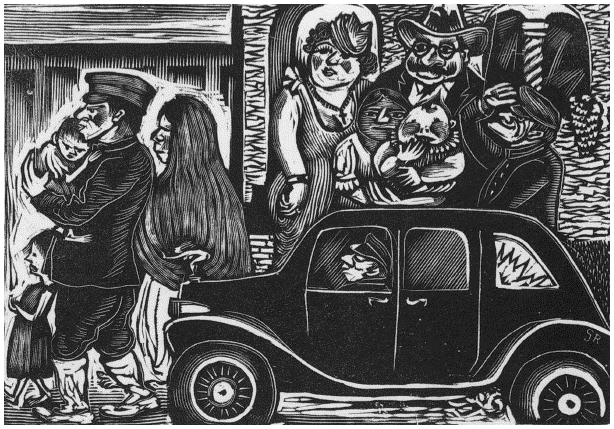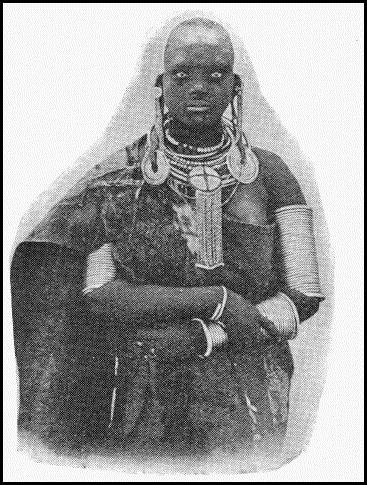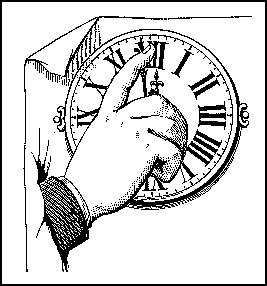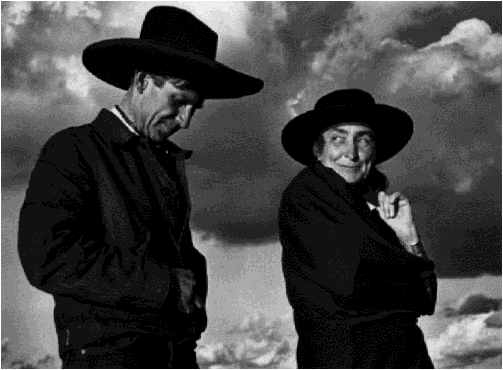Twelve Hits
From Our Past
RALPH gets over 200,000 page hits a month.
Our server lists them in order of frequency of access.
Here are twelve reviews, poems, readings and articles
that hit the spot with our readers.
Leopoldo Méndez
Revolutionary Art and the Mexican Print
Deborah Caplow
(University of Texas Press)

This Méndez comes across as a trooper, and a charmer, and a persuasive writer. During the Depression, he made his first trip to America, and recalled the wonder of being approached by a poor gringo in Arizona: "I remember a man, tall and strong, who came up to us on the street, saying, 'I haven't had breakfast. I haven't eaten. Yesterday I had work and today I don't.' Later he explained to us, 'I dared to approach you because you are Mexican. My countrymen don't like me and won't give me anything.'"
On the way north, Méndez tells of a surprising find: "The wind brought us the miasma of a nearby cadaver. With a lantern we went to look for it and ..."
I was astonished by the spectacle of a dead dog in a state of decomposition, covered by butterflies with silvery wings, carnivorous butterflies that were devouring it. What a shame! I should have made a drawing with the fresh impression of this sight. It was like a dream.
Mosquitoes,
Malaria, and
The
Panama Canal
David McCullough
Seen under the microscope, Stegomyia is a creature of striking beauty. Its general color is dark gray, but the thorax is marked with a silvery-white lyre-shaped pattern; the abdomen is banded with silvery-white stripes and the six-jointed legs are striped alternately with black and pure white. Among mosquitoes Stegomyia is the height of elegance.
Stegomyia is also, like the rat, a creature of human society. It survives by maintaining a close proximity to human beings. As among all mosquitoes it is only the female that bites --- that is, only the female feeds on blood, while the male gets by on other liquids such as fruit juices and is quite harmless. For the female, blood is essential to mature her eggs. Though the female Stegomyia can feed on any warm-blooded animal, her decided preference is for human blood, and thus the whole life cycle of the insect must be maintained in close association with human society.
The Man-Eaters of Tsavo
Lt. Colonel J. H. Patterson, D.S.O.
(Lyons Press)

This book --- if published now --- would get the author and his family mauled if not murdered by the animal rights people as well as the politically sensitive. But we suspect Lyons Press knows that since it was written over a century ago, they can well get away with being enormously and proudly incorrect ... politically, socially, and animally. Dear old Patterson may be a lousy shot but he is a fine story teller, and you and I can well picture being in the veldt with him, around the campfire, eating grouse and grousing about the coolies and the dollar-a-week we had been forced to pay them.
A Woman of Rome
Alberto Moravia
(Steerforth Italia)
He got in the bed beside me. I turned toward him to embrace him, but he pushed me away wordlessly and curled himself up on the edge of the bed with his back to me. This gesture filled me with bitterness and I, too, hunched myself up, waiting for sleep with a widowed spirit. But I began to think about the sea again and was overcome by the longing to drown myself. I imagined it would be only a moment's suffering, and then my lifeless body would float from wave to wave beneath the sky for ages. The gulls would peck at my eyes, the sun would burn my breast and belly, the fish would gnaw at my back. At last I would sink to the bottom, would be dragged head downward toward some icy, blue current that would carry me along the sea bed for months and years among submarine rocks, fish, and seaweed, and the floods of limpid saltwater would wash my forehead, my breast, my belly, my legs, slowly wearing away my flesh, smoothing and refining me continually. And at last some wave, someday, would cast me up on some beach, nothing but a handful of fragile, white bones. I liked the idea of being dragged to the bottom of the sea by my hair. I liked the idea of being reduced one day to a little heap of bones, without human shape, among the clean stones of a shore. And perhaps someone without noticing it would walk on my bones and crush them to white powder. With these sad, voluptuous thoughts I finally fell asleep.
Any Boys
Want Flogging?
Old-Fashioned Discipline
In the Mother Church
James Joyce

Stephen closed his eyes and held out in the air his trembling hand with the palm upwards. He felt the prefect of studies touch it for a moment at the fingers to straighten it and then the swish of the sleeve of the soutane as the pandybat was lifted to strike. A hot burning stinging tingling blow like the loud crack of a broken stick made his trembling hand crumple together like a leaf in the fire: and at the sound and the pain scalding tears were driven into his eyes. His whole body was shaking with fright, his arm was shaking and his crumpled burning livid hand shook like a loose leaf in the air. A cry sprang to his lips, a prayer
to be let off. But though the tears scalded his eyes and his limbs quivered with pain and fright he held back the hot tears and the cry that scalded his throat.
— Other hand! shouted the prefect of studies.
Stephen drew back his maimed and quivering right arm and held out his left hand. The soutane sleeve swished again as the pandybat was lifted and a loud crashing sound and a fierce maddening tingling burning pain made his hand shrink together with the palms and fingers in a livid quivering mass. The scalding water burst forth from his eyes and, burning with shame and agony and fear, he drew back his shaking arm in terror and burst out into a whine of pain. His body shook with a palsy of flight and in shame and rage he felt the scalding cry come from his throat and the scalding tears falling out of his eyes and down his flaming cheeks.
Samovars
And Bedlam
Michael Ingall
Some 250 years later, I found myself chief resident (a doctor, not a patient... yes, I know, sometimes it's hard to tell the difference) on an inpatient psychiatric unit in Boston. The ward had a reputation of serving an elite patient with plenty of insurance coverage. There was no lock on the door, and physical restraint was almost never used. A resident-in-training would sit in a tiny windowless cubicle an hour every day with each of his patients, exploring deep-seated conflicts and issues. Medication was used judiciously, often in less than therapeutic dosages. Electroshock therapy was a rare and cataclysmic event.
Each morning the day would begin with "ward meeting," in which all twenty patients and all staff would sit in a circle in the common room. The meeting was led by Dr. James Skinner, a polished soft-spoken man, whose soothing voice and gentle manner had a calming influence on everyone. The meeting consisted of introductions of new patients, followed by occasional announcements, punctuated by interminable and awkward silences, rather like a Quaker meeting. If anyone said anything negative about another person, Dr. Skinner, like Thumper's mother, would somehow transform the insult into a warm and supportive comment.
The Story of
My Life:
The Restored Classic
Helen Keller
(Norton)

I had been looking for this one for years. Several years ago, I found a recent edition at the local public library. It had been printed in what looked to me to be three-point type. I figured that the publisher had wanted me to experience at first hand the problems that the visually-impaired had with reading. Since my vision is already on a par with Sartre's or Joyce's --- the lesson was not lost on me, and I returned the book to the library unread.This new edition, let me assure you, is nicely packaged, easy to read, and is --- if I may use a phrase from my disreputable past --- a mind-blower. We begin with Keller's story written, presumably, in her own words --- and her writing is supple, poetic, Biblical in the King James sense. This on losing her sight and hearing:
These happy days did not last long. One brief spring, musical with the song of robin and mocking-bird, one summer rich in fruit and roses, one autumn of gold and crimson sped by and left their gifts at the feet of an eager, delighted child. Then, in the dreary month of February, came the illness which closed my eyes and ears and plunged me into the unconsciousness of a new-born baby.
Pia
An Anorectic Case Study
Mara Selvini Palazzoli
(Jason Aronson Inc.)
I now come to the therapist's paradoxical intervention at the end of the first session.
Therapist (turning to the mother): We have all been touched by Pia's concern for you, Signora Ferrarina. It is for your sake that Pia is doing it all. It's because you, Signora Ferrarina, have always been a courageous woman with high moral standards, a woman who stands firm in the face of adversity, who helps others without ever bothering about herself. The story of your life speaks volumes. You have devoted your best years to helping your husband, you have slaved away to make sure your family wants for nothing. Sacrificing yourself for others lends meaning to your life, is your aim. We think that, recently, when things eased up for you (your husband earning enough, his nightly outings no longer causing you suffering, Pia herself having a good job), Pia began to feel, perhaps unconsciously, that a grave threat hung over the family: you might finish up feeling that you had become useless, empty, devoid of reasons to continue the struggle. Perhaps she feared you would become depressed. To avoid that, Pia decided to become anorectic --- the best way of making sure that you, Signora, could still feel that you were being a mother, could still feel needed, could still feel in harness. That is why Pia renounced her beauty, her work, and many other things as well.
Thoreau the Buddhist
Rick Fields
(Shambhala)

Thoreau's love for the Orientals was well-known to his contemporaries. Thomas Cholmondeley, a young Englishman who had come to Concord to meet Emerson in 1855, could think of no better gift to send Thoreau from England than a collection of Orientalia --- "a nest of Indian books." Thoreau fashioned a case for the collection from river-board he had gathered during his canoe trips on the Musketaquid.
Thoreau died in 1862. When a friend asked him on his deathbed if he had made his peace with God he responded, more like a Zen master than a Transcendentalist, that he was not aware they had quarreled. How deeply he had gone, and how closely his friends identified him with the Orientals, is apparent in the description John Weiss gave in 1865:
His countenance had not a line upon it expressive of ambition or discontent; the affectional emotions had not fretted at it. He went about like a priest of Buddha who expects to arrive soon at the summit of a life of contemplation.
The Rooster
In the Wristwatch
Dr. Phage

One of my wristwatches has an alarm which mimics the sound of a rooster crowing. At some point in the distant past the alarm was set, God only knows how, to go off in the mid-morning, and I have no idea how to change or cancel its now irrevocable setting. Until recently I wore this watch every day. When the rooster sound went off in class or in a meeting each morning, I played innocent, looking around the room as if to discover where the sound was coming from. Eventually, this ruse began to fail, and to avoid further embarrassment I gave up wearing the watch. In one attempt to kill the alarm, I put it in my freezer for a week, but that didn't faze it. Not knowing how to unprogram the thing, I feared to throw it away, out of superstitious dread of what the garbage-men would think when they heard a rooster crow from inside my dumpster. I finally nailed the watch to the wall in my study, where it remains, sturdily crowing every morning at what it thinks is 9:41 AM.
Georgia O'Keefe and
New Mexico
A Sense of Place
Barbara Buhler Lynes et al
(Princeton University Press)
"Cedar Tree at Lavender Hill" contains what either might be a knot of wood or a pigeon with its clutch of eggs. "Sand Hill" offers a shy rump and a pair of rustic male nipples. "Black Place III" shows a O'Keefian record-breaking four-and-a-half buttocks.On "Lavender Hill" she's managed to mount three eyes along with a couple of withered breasts. "The Chama" resembles Matisse's naked dancers on the upper walls at the Barnes Foundation. "The White Place" presents a penis or two, "Red Hills" a couple of nice fat knees, and "Red Hills II" sports an embarrassingly shaded pair of buttocks (someone has been sitting around too long!)
Like a Butterfly
Quan Berry
My mother says women were made to bleed
and the whole thing takes twenty minutes.
She says afterwards they'll wrap me up like a butterfly
for forty nights and I'll drink only camel's milk.
My mother says tomorrow
I'll be a little bride hands red with henna.
I'll be shining in white and get to wear as much gold
as I want. She says afterwards something will get killed
and the whole clan will come to eat
only they won't sit down
until I've been washed in the Nile.
The Airmen and
The Headhunters
A True Story of Lost Soldiers,
Heroic Tribesmen and the
Unlikeliest Rescue of World War II
Judith M. Heimann
(Harcourt)

The British and the Dutch outlawed this head-hunting business and brought in some good Christians to put the nail in the coffin, as it were. But you know how difficult it is to get the old folks to give up their crotchety habits of yore --- our pipe-smoking, our snifter of brandy after supper, our dried heads on the bedpost. The seven airmen ... joined later by four others who crashed in the forest near-by --- ended up being cared for, and not head-hunted, by the Dayak. Why? These "savages" were not dummies. They had been living under Japanese rule for more than three years. When the Americans appeared, their first question was: "Who's going to win this war?" The agreement was universal. Sooner or later, the Greater Asian CoProsperity Sphere would be a dead duck. More than that, the stuffy Dutch and the British were now encouraging the head-hunting of yore. If the heads were Japanese.
Marshall McLuhan Unbound
Eric McLuhan
W. Terrence Gordon
Editors
(Ginko Press)
--- We are in an electronic age "in which we stand as primitives of an underdeveloped and unknown culture."
--- It is said that the main discovery of the nineteenth century was "the discovery of the technique of invention."
--- "The great discovery of the twentieth century is the technique of suspended judgment."
--- The humanist is a Luddite "because he gets a thrill of imagined potential from the fragmentary..."The humanist is more fascinated by the incomplete "Hyperion" of Keats than by the complete "Prelude" of Wordsworth.
--- In mid-twentieth century, AT&T was the largest business in the world "with a gross national product equal to the entire Canadian economy," and got that way by "doing nothing but move information. No wheels, no shafts, no belts, just the movement of information."
--- "With the computer all move out of the age of number and statistics into the age of the curve and the simultaneous awareness of structures."With satellite broadcasting ... we move, scientist and humanist alike, into the world of instant and inexpensive access to anything and anybody on the globe.
My 'Dam Life
Three Years In Holland
Sean Condon
(Lonely Planet)

But this supposedly not-too-bright fellow is no dummy at all --- but, rather, a sly wit who can turn a visit to the dentist into a major trauma, a visit to the doctor a knee-slapper, who can invent a dialogue with himself about his booze consumption and turn it into a mini-drama right out of AA:SC: Your father's an alcoholic, isn't he?
SC: (Long pause): Possibly.
SC: In fact, definitely.
SC: Whatever you say. Why do you always bring my father into it?
SC: Because I think it's important
SC: (no response)
SC: This conversation took place in your head, didn't it?
SC: Yes it did. It says so on the previous page.
Because of the wonderful way he paints his three years in a not very accommodating city, we know he's lying about his mentality: he's someone you and I would want to hang out with, a genuine gas who can turn buying stamps into a major adventure:
"Hello," I said, to the slumped grey figure before me. "I'd like two stamps and two envelopes, please. Alstublieft."
With the charm and alacrity of a corpse the guy slid the two stamps toward me then told me that they didn't sell envelopes.
"This is a post office, " I reminded him.
"Nevertheless, we do not sell envelopes," he reminded me. Then he pointed in the direction of Belgium and said, "Tabac."
Fulgencio Batista
From Revolutionary to Strongman
Frank Argote-Freyre
(Rutgers University Press)
Batista (Senior) was no tinpot dictator. He was born a peasant, worked as a canecutter, left school after the fourth grade ... yet taught himself to read while a railway worker for the omnipresent United Fruit. He dressed impeccably and his apartment in Camagüey "was crammed with newspapers, magazines and books, many of which were highlighted and marked off by Batista, so he could remember particularly cogent points."He had relatively little money and few connections, but reading and the acquisition of knowledge were ways to level the playing field. The lesson that careful preparation and a thorough understanding could overcome privilege began to resonate, and it drove him to read even more and to educate himself.
He joined the army in 1923, rose slowly through the ranks until, after the Sargeant's Revolt, he designated himself
Colonel Batista." That was when he began to run the whole show ... but always from the far background.
The American People
In World War II
David M. Kennedy
(Oxford)

The Japanese had already dislodged, captured or scattered into the moldy jungle the five hundred or so Europeans who ran the Solomon Islands' few shabby coconut plantations, hacked laboriously by native workers out of the vine-choked tropical rain forest. The Solomons were annually drenched by some of the planet's heaviest rainfalls. The fetid atmosphere buzzed with insects. The damp jungle floor slithered with rodents and reptiles. Above it soared giant hardwood trees with forty-foot-diameter trunks arising from splayed, fin-like bases 150 feet into the virtually opaque canopy. The nearly one hundred thousand Melanesians who had inhabited the islands since time immemorial had already had a taste of Western ways when in 1893 they came under the rule of the British Solomon Islands Protectorate with its rustic and sleepy colonial capital at Tulagi.Now their verdant islands and blue lagoons were about to be convulsed by a spectacle so violently improbable, so murderously fantastic, that their horror and wonder could only be guessed at by imagining the citizens of Los Angeles awakening one morning to find flotillas of Eskimos and Mayans, somehow armed with weapons destructive beyond reckoning, descending, massively upon the coast of California, there to wage colossal battle.
The Encyclopedia
Of World War I
A Political, Social,
and Military History
Spencer C. Tucker, Editor
(ABC-Clio)
I'm ignoring the entire Russian Front, the Treaty of Brest Litovsk, the Russian Civil War, the war at sea, the disaster of Gallopoli (the largest "amphibious landing in history ... until World War II"). But I plead regional interest and affect. My father and many of his brothers, cousins, and friends left the farm, went to Europe, and saw another world. By their later words, I know that this was a revolutionary experience for them if not for most Americans. It changed our lives forever. And Armentières was a familiar name to these same Americans. Joining the war in the last year, they missed the irony of a song that proclaimed a place --- not where so many Europeans had lost their young lives, but rather --- one that told of a young lady who washed underpants and never got kissed:
Mademoiselle from Armentières, Parlez-vous,
Mademoiselle from Armentières, Parlez-vous,
Mademoiselle from Armentières,
She hasn't been kissed for forty years.Hinky-dinky parlez-vous.
Oh Mademoiselle from Armentières, Parlez-vous,
Mademoiselle from Armentières, Parlez-vous,
She got the palm and the croix de guerre,
For washin' soldiers' underwear,
Hinky-dinky parlez-vous.
Our favorite war song of all time, also not included, but part and parcel of the British dogsbodies, along with the rats, lice, fleas, trench knife, trench foot and trench fever, was








